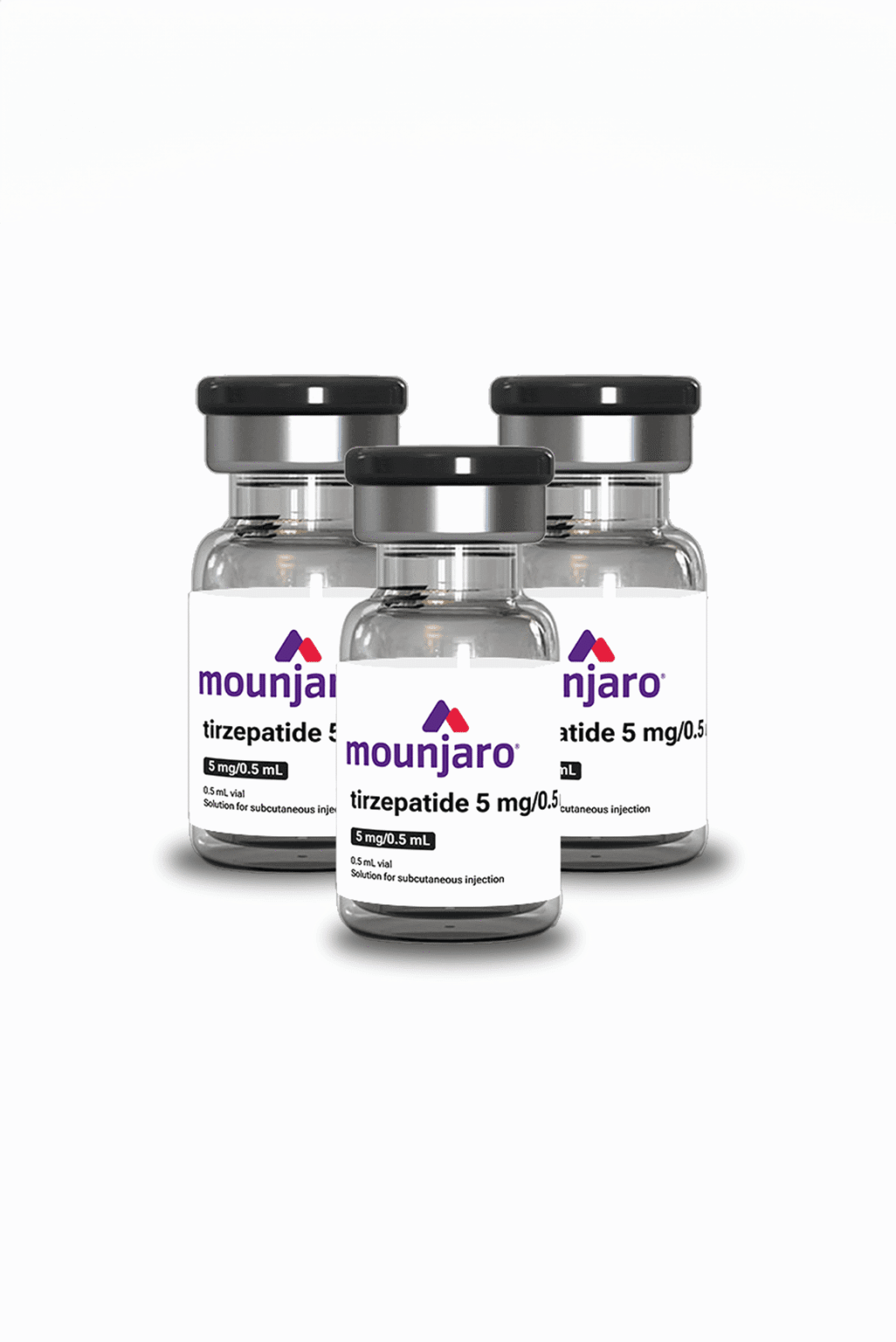

Mounjaro
$362.85
United States dollar ($) - USD
-
Pound sterling (£) - GBP
-
Euro (€) - EUR
-
United States dollar ($) - USD
How it works
Mounjaro belongs to a new class of medications known as dual glucose-dependent insulinotropic polypeptide (GIP) and glucagon-like peptide-1 (GLP-1) receptor agonists. It mimics the action of two natural gut hormones, GIP and GLP-1, which are released after eating.
This dual action helps regulate blood sugar levels by:
- Stimulating insulin release when blood glucose is high.
- Decreasing the amount of sugar produced by the liver.
- Slowing down stomach emptying, which can help control post-meal blood sugar spikes and increase feelings of fullness.
Weight loss and Mounjaro
While primarily approved for type 2 diabetes, Mounjaro has also demonstrated significant weight loss in clinical trials, particularly when combined with diet and exercise. In fact, some research suggests Mounjaro may lead to greater weight loss than semaglutide (Ozempic/Wegovy). However, it is important to note that Mounjaro is not officially approved for weight loss itself, according to UCHealth, but its active ingredient, tirzepatide, is approved for chronic weight management under the brand name Zepbound.
Administration and dosage
Mounjaro is administered as a once-weekly injection under the skin (subcutaneously) in the abdomen, thigh, or upper arm. It is available as a pre-filled single-dose pen in various strengths.
Potential side effects
Common side effects of Mounjaro include nausea, diarrhea, decreased appetite, vomiting, constipation, indigestion, and stomach pain.
Important considerations and warnings
- Thyroid C-Cell Tumors: Mounjaro carries a Boxed Warning (the FDA’s strongest warning) regarding a potential risk of thyroid C-cell tumors, including medullary thyroid carcinoma (MTC), based on animal studies. It’s crucial to inform your doctor if you have a personal or family history of thyroid cancer.
- Pancreatitis: Inflammation of the pancreas (pancreatitis) has been reported with Mounjaro use. Seek immediate medical attention if you experience severe stomach pain with or without vomiting.
- Hypoglycemia (Low Blood Sugar): If you are taking Mounjaro with other medications that lower blood sugar, such as sulfonylureas or insulin, your risk of hypoglycemia may be higher. Your healthcare provider may need to adjust your medication dosages.
- Gastrointestinal Problems: Mounjaro is associated with gastrointestinal side effects, which can sometimes be severe. If severe, these can lead to dehydration and potentially kidney problems.
- Allergic Reactions: Serious allergic reactions, including anaphylaxis, are possible but rare.
- Drug Interactions: Mounjaro can affect the absorption of other medications, including oral contraceptives, due to delayed gastric emptying
- Thyroid C-Cell Tumors: Mounjaro carries a Boxed Warning (the FDA’s strongest warning) regarding a potential risk of thyroid C-cell tumors, including medullary thyroid carcinoma (MTC), based on animal studies. It’s crucial to inform your doctor if you have a personal or family history of thyroid cancer.
- Pancreatitis: Inflammation of the pancreas (pancreatitis) has been reported with Mounjaro use. Seek immediate medical attention if you experience severe stomach pain with or without vomiting.
We offer complimentary express shipping.
Free returns are available worldwide. If your item is eligible for return, you have 30 days from the date you receive your order to follow this procedure.
See delivery and returns for more information.
Shop The Look













